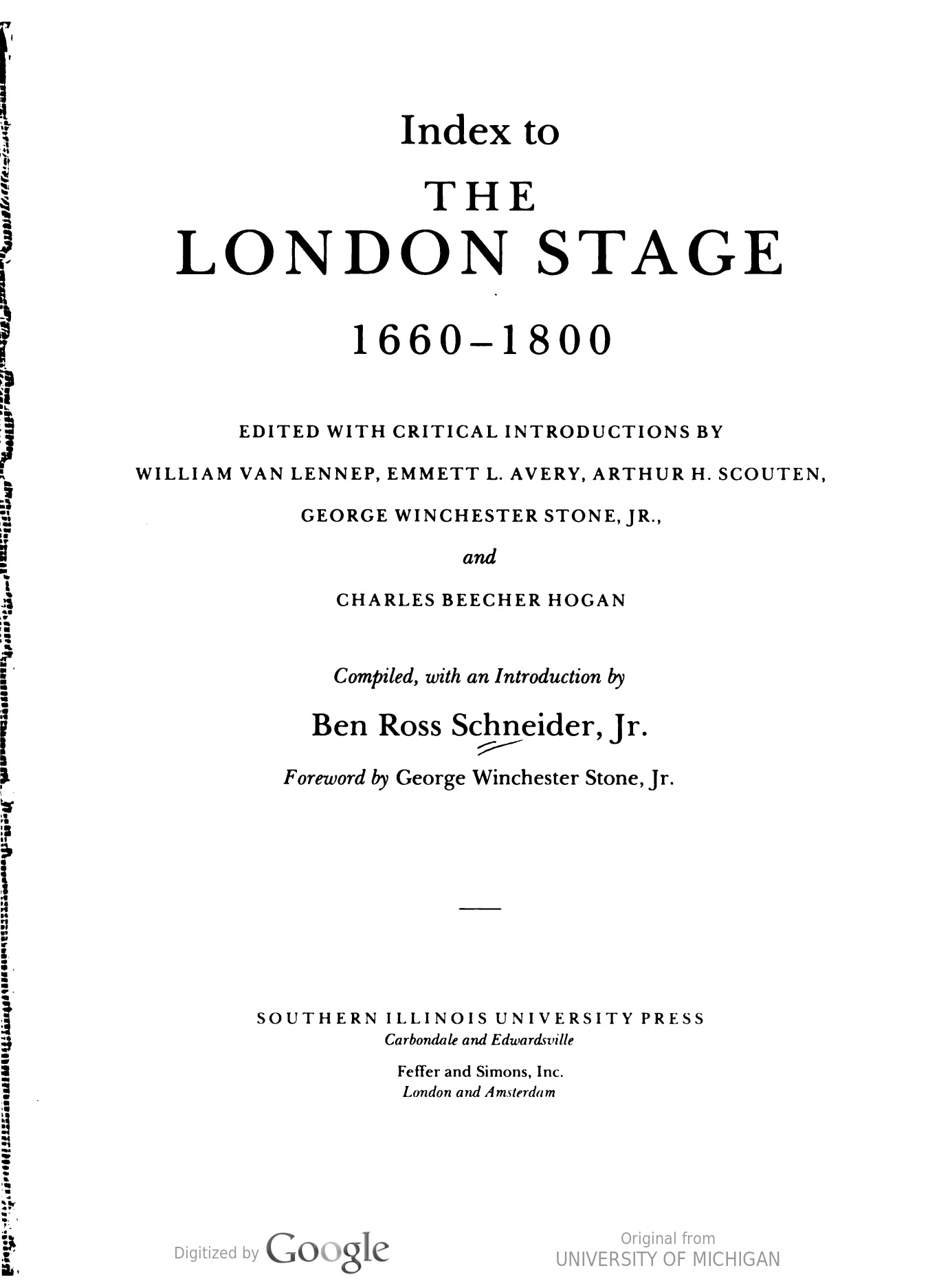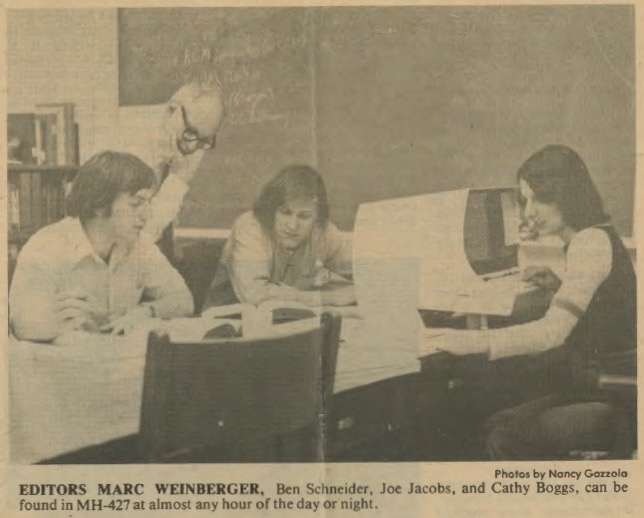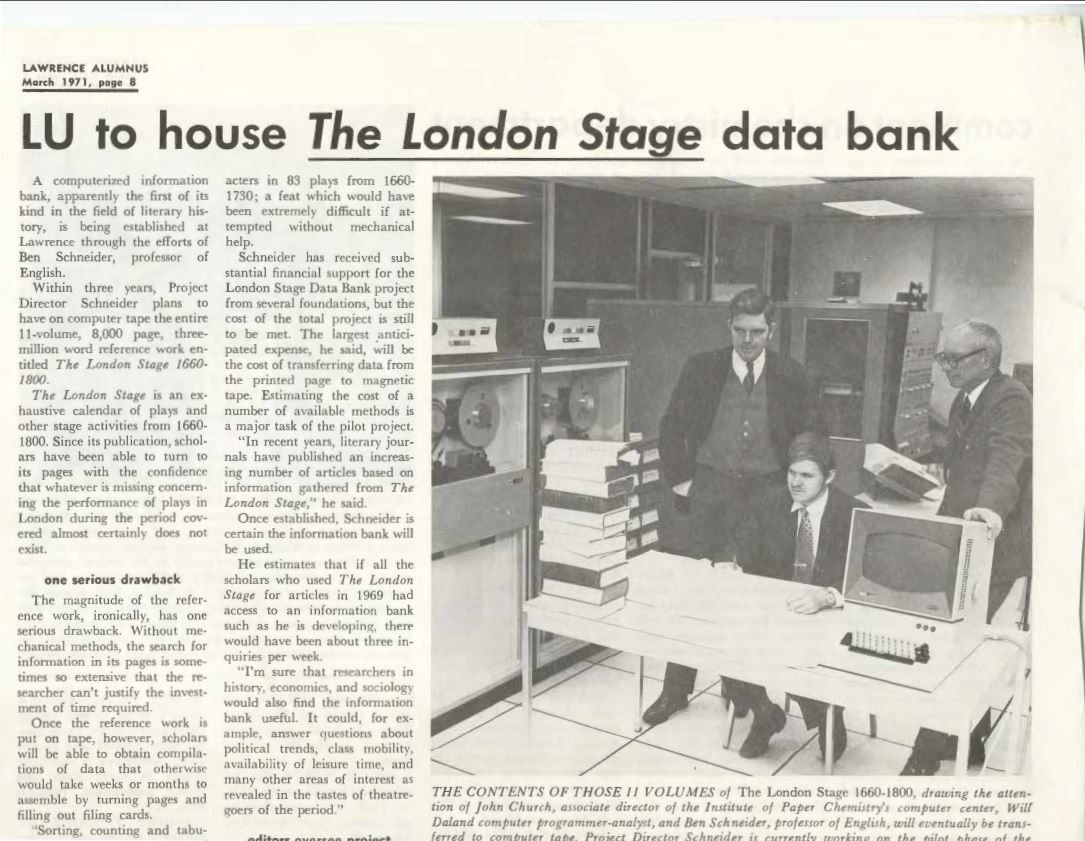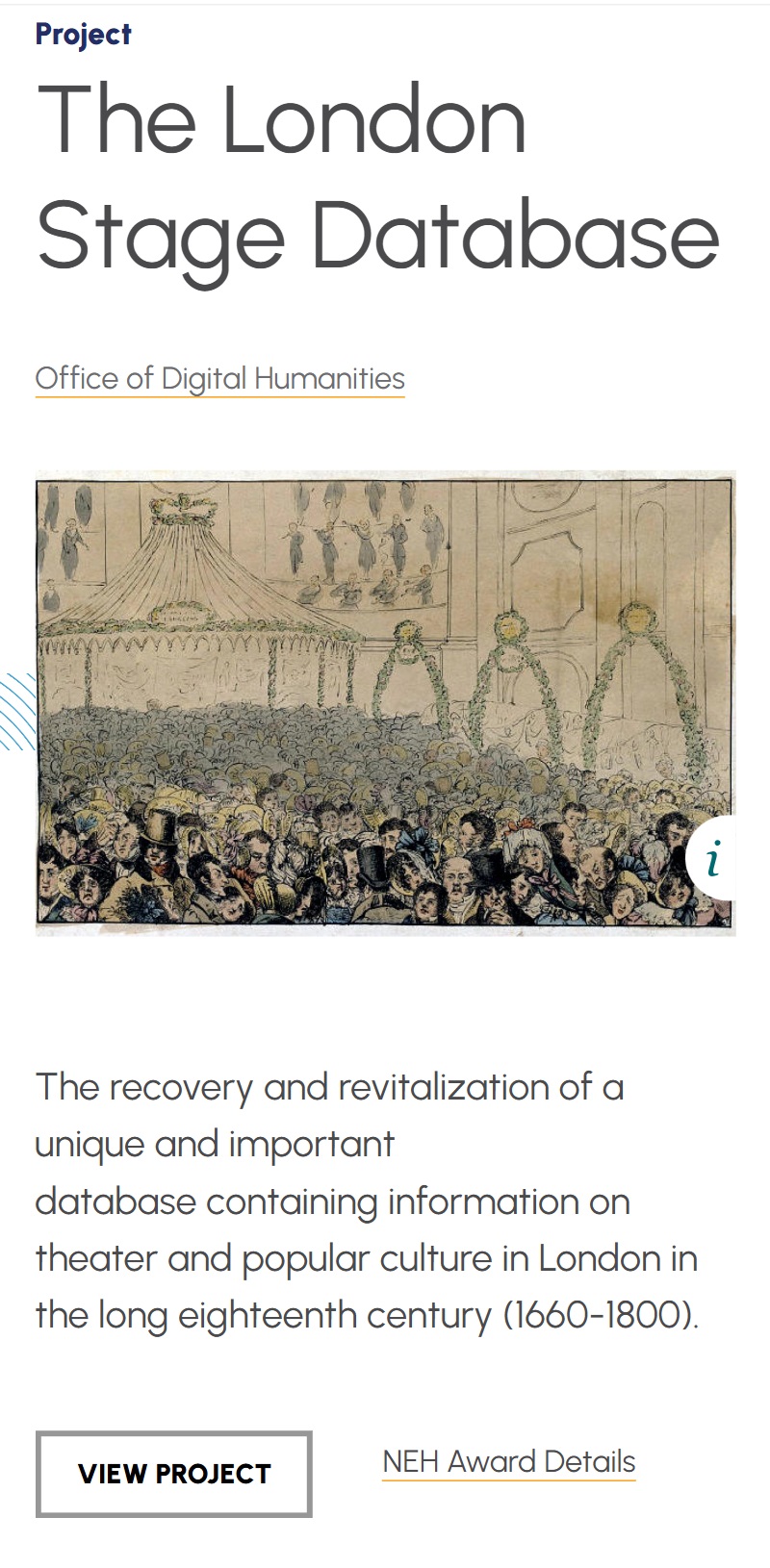
1960-8: Curation
In the middle of the twentieth century, a team of theater historians created a calendar of performances based on playbills and newspaper notices used to advertise performances, as well as theater reviews, published gossip, playhouse records, and the diaries of people who lived at the time. The result was The London Stage, 1660-1800: A Calendar of Plays, Entertainments & Afterpieces, Together with Casts, Box-Receipts and Contemporary Comment. Compiled from the Playbills, Newspapers and Theatrical Diaries of the Period (Southern Illinois University Press, 1960-1968). This 8,000-page, eleven-book reference work was understood immediately as essential to scholarly research and teaching about the period. It was also frustratingly difficult to use for any kind of systematic inquiry.

1970-83: Digitization
In the 1970s, the editors of The London Stage commissioned a computerized database of the information in their reference book. The London Stage Information Bank, as it was then known, was created over the course of a decade with the support from the National Endowment for the Humanities, the American Council of Learned Societies, the American Philosophical Society, the Andrew Mellon Foundation, the Billy Rose Foundation, and others. Regrettably, it fell into technological obsolescence after only a few years, and it was long thought irretrievably lost. The only surviving artifact of the project that remained in circulation was the Index to the London Stage, which was shelved alongside the original reference books in many research libraries.

2013-17: Recovery
In 2013, Mattie Burkert began investigating the history of the Information Bank, drawing on the archives at Lawrence University, where the original project was housed. She also got in touch with the people involved in the Information Bank project, including developers and research assistants who had helped to build it. The story she uncovered, and the origins of her efforts to recover the lost database, are detailed in the essay "Recovering the London Stage Information Bank: Lessons from an Early Humanities Computing Project" (Digital Humanities Quarterly 11.3 [2017]).

2018-24: Remediation and Migration
From 2018 to 2019, with the support of the National Endowment for the Humanities and other funders, Burkert and a team of researchers, developers, and advisors worked to salvage the damaged data and code from the Information Bank and to transform it into a modern relational database.
In 2020, Burkert moved to the University of Oregon and worked with developers there to migrate the site to UO servers; the following spring, the team launched a major update with improvements to the security and efficiency of the site, with a particular focus on the speed and accuracy of searches. Users can use the keyword or advanced search pages to seek information about specific actors, theaters, play titles, playwrights, etc., or visit the legacy search page to reproduce queries run before May 2021. In addition, those who wish to download part or all of the data and conduct exploratory analyses can do so using the freely available assets (programs, data files, and documentation) in the team’s GitHub repository.

2024 - Present: Extension
These open access and open source values distinguish the London Stage Database from related resources, such as the subscription-based Eighteenth-Century Drama portal developed by publisher Adam Matthew. Furthermore, the media archaeological nature of our project informs our team's commitment to transparency about our sources, our decisions, and the limitations of our work. Like any resource of its kind, the London Stage Database offers a useful starting point for research and teaching, but the data should not be taken as a full, complete, or accurate picture of performance in London over a 140-year period. Instead, we insist that it be understood as a representation of a particular set of archival documents, transformed many times over by collectors of theater ephemera, archivists, curators, editors, scholars, and developers.
To read more about our approach to the data in this project, visit the About the Data page.